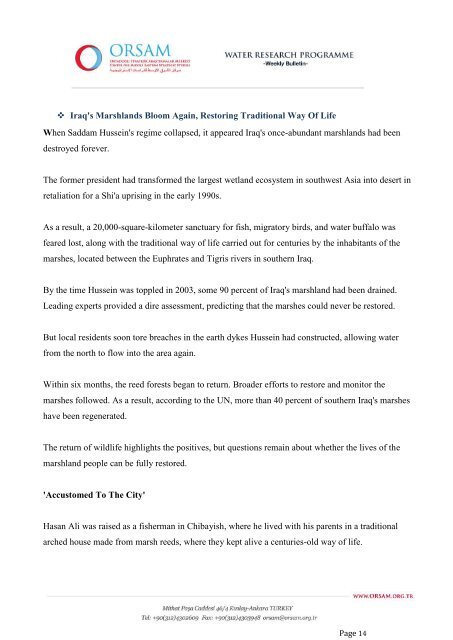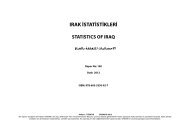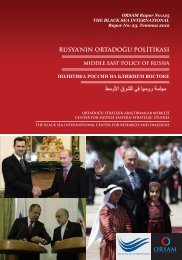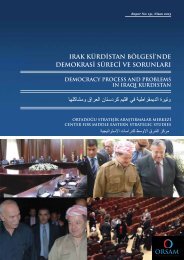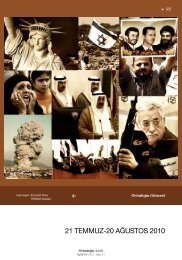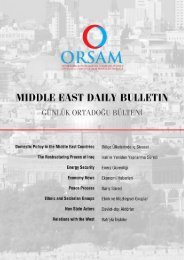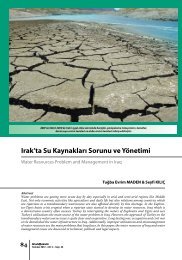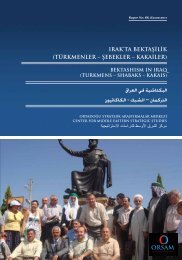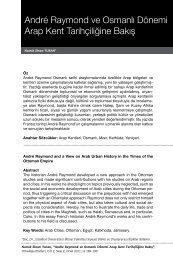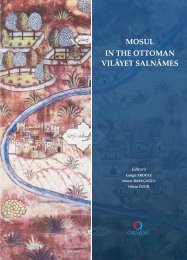29 April -05 May 2013 - orsam
29 April -05 May 2013 - orsam
29 April -05 May 2013 - orsam
You also want an ePaper? Increase the reach of your titles
YUMPU automatically turns print PDFs into web optimized ePapers that Google loves.
Iraq's Marshlands Bloom Again, Restoring Traditional Way Of Life<br />
When Saddam Hussein's regime collapsed, it appeared Iraq's once-abundant marshlands had been<br />
destroyed forever.<br />
The former president had transformed the largest wetland ecosystem in southwest Asia into desert in<br />
retaliation for a Shi'a uprising in the early 1990s.<br />
As a result, a 20,000-square-kilometer sanctuary for fish, migratory birds, and water buffalo was<br />
feared lost, along with the traditional way of life carried out for centuries by the inhabitants of the<br />
marshes, located between the Euphrates and Tigris rivers in southern Iraq.<br />
By the time Hussein was toppled in 2003, some 90 percent of Iraq's marshland had been drained.<br />
Leading experts provided a dire assessment, predicting that the marshes could never be restored.<br />
But local residents soon tore breaches in the earth dykes Hussein had constructed, allowing water<br />
from the north to flow into the area again.<br />
Within six months, the reed forests began to return. Broader efforts to restore and monitor the<br />
marshes followed. As a result, according to the UN, more than 40 percent of southern Iraq's marshes<br />
have been regenerated.<br />
The return of wildlife highlights the positives, but questions remain about whether the lives of the<br />
marshland people can be fully restored.<br />
'Accustomed To The City'<br />
Hasan Ali was raised as a fisherman in Chibayish, where he lived with his parents in a traditional<br />
arched house made from marsh reeds, where they kept alive a centuries-old way of life.<br />
Page 14


